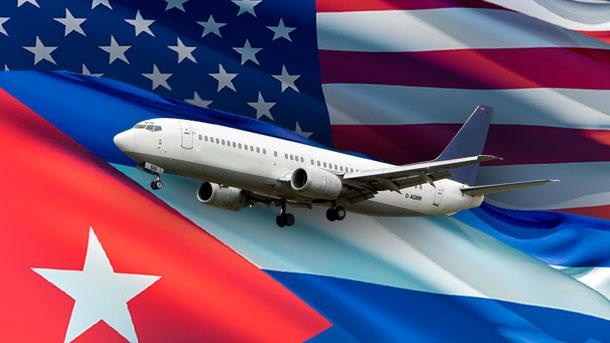-
Tips for becoming a good boxer - November 6, 2020
-
7 expert tips for making your hens night a memorable one - November 6, 2020
-
5 reasons to host your Christmas party on a cruise boat - November 6, 2020
-
What to do when you’re charged with a crime - November 6, 2020
-
Should you get one or multiple dogs? Here’s all you need to know - November 3, 2020
-
A Guide: How to Build Your Very Own Magic Mirror - February 14, 2019
-
Our Top Inspirational Baseball Stars - November 24, 2018
-
Five Tech Tools That Will Help You Turn Your Blog into a Business - November 24, 2018
-
How to Indulge on Vacation without Expanding Your Waist - November 9, 2018
-
5 Strategies for Businesses to Appeal to Today’s Increasingly Mobile-Crazed Customers - November 9, 2018
Obama opens Cuba to U.S. tourists, eases trade restrictions
“The United States continues to move itself in a better position to advance our national interests”.
Advertisement
Enacted by the Departments of Treasury and Commerce, these are the most significant regulatory steps so far on the path that Obama and Cuban president Raúl Castro laid out in December toward normalizing relations.
The US departments of Treasury and Commerce announced today new regulations that modify some aspects of the sanctions against Cuba, while maintaining the main body of the economic, commercial and financial blockade.
This photo taken on September 29, 2015 shows US President Barack Obama as he shakes hands with Cuba’s President Raul Castro during a bilateral meeting on the sidelines of the United Nations General Assembly at UN headquarters in NY. He also said the Cuban government should let foreign firms hire Cubans directly. The administration named athletes, artists and performers as potential beneficiaries.
Cuban nationals in the United States in a non-immigrant status or pursuant to other non-immigrant travel authorisation will be able to earn a salary or compensation, consistent with the terms of the particular visa, provided that the recipient is not subject to any special tax assessments in Cuba. Such a system would eliminate the need for some of the world’s priciest baseball talent to rely on human traffickers to get to the major leagues. They also allow individuals to visit the island for “people-to-people educational travel”, instead of requiring them to go in group tours. That means any American can legally go to Cuba after filling out a form asserting that their trip is for educational purposes instead of tourism. The traveler would be required to keep records of the full-time educational activities for five years.
“The administration wants to do as much as it can unilaterally before the clock runs out”, said a person who has been briefed on Obama’s strategy.
The various steps were mostly minor and technical but add up to the continuing erosion of Congress-mandated restrictions on interactions with Cuba and Cubans as the Obama administration seeks to end the decades-old embargo on the country.
Still, they acknowledge that the prospects remain dim for influencing democratic reform, even though Obama plans to meet dissidents in Havana.
The embargo between the United States and Cuba has been in place since 1960, but according to the ESPN.com report, Obama is expected to request its elimination when he visits Havana on Sunday.
Part of the delegation will be Arne Sorenson, executive president of the Marriott International hotel chain, as well as Ursula Burns, executive president of Xerox, also executives of the companies AT&T, of telecommunications, and Starwood Hotels and Resorts Worldwide, which are interested in learning more about business opportunities on the island, points out the press release.
Advertisement
“They’re elevated it now to just about the single most important irritant of the larger embargo”, said Robert Muse, an attorney specializing in US law on Cuba. His company continues to offer flights from Florida.





























